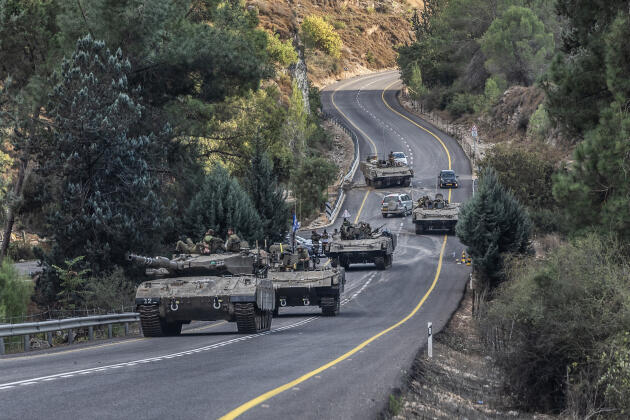The Double Game of Hizballah
During the 1980s Hizballah killed hundreds of people in terrorist attacks against Western targets: the bombings of the U.S. embassy in Beirut in 1983 and 1984; the twin 1983 suicide attacks on U.S. and French peace forces in Beirut. In a 1998 interview, Mustapha Tlass, the ex-Syrian minister of Defense, boasted that he gave the green light to the Islamic organizations to act against the American and French forces in Lebanon. However, he said, facetiously, he did not permit operations against the Italians because he was enamored of the Italian film star, Gina Lolobrigida!
Hizballah’s activities were global in reach. In Europe, France and Spain were its major targets. In 1985 – 1986 Hizballah was linked to 13 bombings in Paris against shopping centers, rail stations, and trains, which killed 13 people and wounded more than 250. On April 12, 1985, 18 Spaniards were killed and 27 people injured in a Hizballah bomb attack on the El Descanso restaurant, near the U.S. Air Force base in Torrejon.
Hizballah also attacked Arab states and their citizens – Saudi Arabia, Kuwait, Bahrain – and American and French targets in these countries, in cooperation by the way with militants of the Iraqi Dawa Party, the same party that today could lead the new Iraqi government.
Hizballah’s participation in the 1992 Lebanese parliamentary elections, and the Israeli unilateral withdrawal from southern Lebanon in May 2000 led analysts to predict that Hizballah would transform itself into a “normal” Lebanese political party.
However, Hizballah continued to consider terrorism a strategic tool and a religious duty, part of a “global jihad.” It was behind the two deadliest terrorist attacks in South America’s history: the bombings of the Israeli embassy in March 1992 and the Jewish community center (AMIA) in Buenos Aires in July 1994, killing 130 people; in 1996, it supported the Saudi Hizballah’s bombing of the Khobar Towers U.S. military complex in Saudi Arabia. In the 1990s, Hizballah unsuccessfully attempted to attack U.S. and Israeli ships docked in Singapore and the Israeli embassy in Bangkok, Thailand.
Even Osama bin Laden cited Hizballah’s 1983 suicide bombing of the U.S. Marine barracks in Beirut as the first “American defeat” by Islamist radicals.
Since October 2000, Hizballah supported the Palestinian terrorist campaign against Israel, in coordination with Syria and Iran, by providing training, logistical and operational support. Hizballah also put forth a significant effort toward establishing an independent terrorist and intelligence infrastructure inside both the Palestinian Authority and Israel. On the military front, the organization continued its cross-border attacks against Israeli forces in the Shebaa Farms area and expanded its arsenal of weaponry, acquiring thousands of rockets and missiles capable of reaching a greater number of Israeli targets.
In the last year, Hizballah has been behind some 70% of the terrorist attacks by radical Palestinians factions. Since the death of Yasser Arafat in November 2004 and the new Palestinian leadership’s attempts to renew negotiations with Israel on the background of the decision on unilateral withdrawal from Gaza, Hizballah has become a direct threat to the peace and reform processes. According to Palestinian Authority sources, Hizballah offered up to $100,000 to Fatah and Hamas activists in the West Bank and Gaza Strip to carry out a suicide attack against Israel. They also expressed fear that Hizballah and Iran were planning to kill PA Chairman Mahmoud Abbas in order to thwart attempts to revive the peace process.
Iran’s massive support for Hizballah has helped the organization to maintain pressure on Israel’s northern border and facilitate assistance to the Palestinian Islamist organizations.
Nevertheless, Syria – not Iran – has been the most important source of support for Hizballah’s activity against Israel, by providing a strategic umbrella, military and political coordination, and pressure on Beirut to give the organization free rein in southern Lebanon. This odd alliance between the secular Baathist regime of Syria, which killed 20,000 Syrian Muslim Brothers in 1982, and the jihadist Hizballah, transformed the latter into a strategic partner and operational arm of the Syrian army in confrontation with Israel.
Moreover, the balance of power between Damascus and Hizballah has shifted noticeably during the young Bashar Asad’s reign, with Hassan Nasrallah assuming greater independence and demonstrating a certain charismatic ascendancy.
The massive Beirut pro-Syrian demonstration, a Hizballah operation, included mainly Shiites bused from the slums of southern Beirut, but also Syrians in buses which crossed the frontier between the two countries. It offered a defiant challenge to the Lebanese opposition forces that have insisted on Syrian withdrawal and exposed fault lines of class and ideology. However, for the first time Hizballah was cautious not to use its own yellow flags and armed militia on the streets.
It is on this background that one must understand Hizballah’s support for the continuation of the Syrian presence in Lebanon. Hizballah leaders want to continue their double game as a legitimate Lebanese party and a radical Islamist organization which strives to Islamize the country, to destroy Israel, to expel all Western presence in the Arab and Muslim world through armed struggle. The Syrian withdrawal would position Hizballah as the next target and jeopardize its plans.
Nonetheless, if the internal and international pressure will continue, it is reasonable to accept the view expressed by the Lebanese opposition leader Jibran Tuweini, as cited by the New York Times: “This is a goodbye party, not a show of support for Syria…If they wanted this to be a challenge to us, they would have brought their party’s yellow flags. But Hezbollah doesn’t want to burn its bridges with anyone because ultimately they will have to return to the Lebanese people once everything is over.”
The huge March 13 Beirut counter-demonstration in Martyrs Square by the Lebanese opposition gathered according to some estimates more than one million Christians, Sunnis and Druzes and represents a dramatic and potent challenge to Syria, the pro-Syrian Lebanese government and its Hizballah ally.






